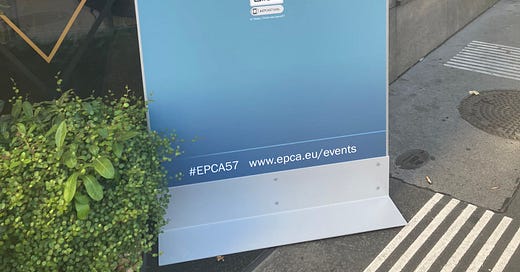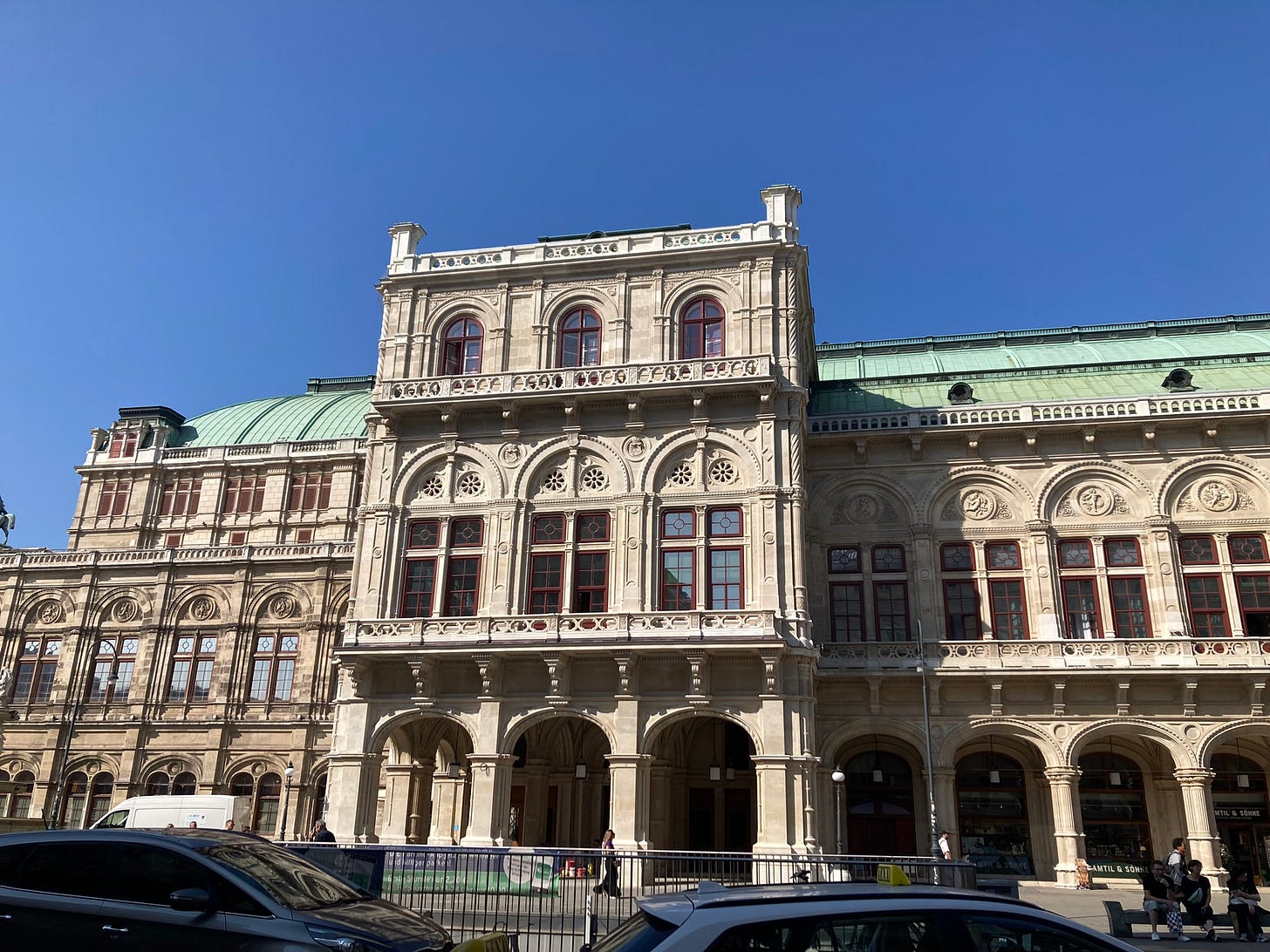Micro blog #3 - "Who is going to pay for it?"
The paradox of striving for true sustainability underneath ongoing capitalist thinking
These micro blogs are my attempt to write succinct, insightful, punchier blogs in less than 750 words, semi-regularly. Please do let me know how I am doing in the comments below and what you take away and/or may challenge as we journey together towards expanding possibility within ourselves and industry!
I was in six business meetings across Tuesday 26th and Wednesday 27th September 2023 in Vienna, Austria.
Two business lunches, two customer meetings, one internal meeting and one supplier meeting.
All six have featured a ‘deeper than usual’ look at the topics of sustainability, people and culture, and how that is being looked at through various chemical industry lenses.
All six featured, to differing degrees, the same question.
"Who is going to pay for it?"
Whether referencing greening supply chains, recruiting, and developing top talent or seeking to build more inclusive structures, the same theme kept popping up.
Existentially, you could answer, all of us if we do not get bolder and braver at reimagining our current and future states.
But what are your feelings and what are your thoughts as you reflect on this question, “who is going to pay for it.”
For me, it is quite a visceral question. It is like an onion with many layers, all of which need to be unpicked and explored.
Getting more curious
When I first wrote THIS blog I was really angry, back in Feb 2023, but I was as angry with myself for not speaking up and asking the pertinent questions that could and should be asked based on the patterns and behaviours I am observing, within industry and more widely in the world.
To what extent do you not say what you want to say, in any area of your life?
Why might that be?
That personal anger has shifted (and needed to be sat in, felt and acknowledged), both within me and within more and more people that I encounter within the chemicals and up/downstream sectors. Throughout these six meetings:
There was constructive challenge to our grow at all costs thinking. Indeed, my colleague referenced chats we have had around the fact “can we keep growing year on year?” - the room fell into silence interestingly at that point
There was suggestion that we need to move away from our conditioned competitive, win at all costs thinking, towards more collective and aligned decision making, up and down the energy and chemicals value chain - this is an important, constructive shift
There was shock all around one business table that the UK Prime Minister has gone back on his Net Zero 2050 commitments (see my recent post on this topic which is sadly reinforcing much of that messaging)
There was honesty and humility that Western technocracy like carbon capture and sustainable aviation fuel are not well grounded in reality and are indeed misdirection
There is acknowledgment that for us in the West to be accelerating the rollout of electric vehicles, there are very real issues of oppression occurring where communities near Lithium mines, mainly in the Global South, are losing access to their water source, in favour of lithium mining for Western cars! 1 metric tonne of lithium requires 2 million litres of water as per this article)
None of the above should make us feel ashamed or guilty, these are symptoms of hugely degenerative structures and thinking that have been handed down to us, but it could ignite our curiosity.
What else are we not seeing or sensing?
What else are you not seeing or sensing?
Are we being kept blind and/or misdirected to avoid joining the dots?
What is possible when we allow ourselves to review our lenses on the world from a blank canvas?
By myself staying more humble, more curious, holding space for more expansive dialogue with my industry peers, I am starting to see and hear different aspects of their humanity, and their thought processes that sit behind.
More people in the up and downstream chemicals sectors DO care.
This is clear to me. How to connect them and bring them together is an open curiosity for me.
We are equally human.
Yet our Western impact on the human and non-human life in the Global South is massively unequal.
The possibility to explore these deeper, previously ignored and/or unseen topics, up and down stream from chemicals, feels potent.
It feels playful.
It feels expansive.
It feels necessary if we are to center those most harmed in our reimagining.
We really can, together, expand possibilities.
To what extent could curiosity help you explore, play and feel more expansive within your context in this moment?
Who can you have these deeper, more constructively challenging dialogues with currently?
As I press publish on this newsletter, I am one of 26 humans that has been overbooked on a BA flight back to London from Vienna. More to follow on that ……..
Shall we connect?
My name is Garry Turner and I guide the expansion of possibilities at the intersections of International Sales, People & Culture, Equity & Inclusion and Sustainability:
Subscribe to my substack at
International speaker on topics around human-centered design, vulnerability and change is an inside job. See flyer HERE.
Support senior leaders and mission driven solopreneurs as a Thinking Partner. See flyer HERE.
Facilitator of people-centered workshops and organisational design. See flyer HERE.
Guide of 1–1 personal, transformational Exploration Spaces. See flyer HERE.
The co-creator with Jo Hompstead of Spaces in-person gatherings which are an emergent and co-creative space for both businesses and open groups
Digital Business Card — https://link.v1ce.co.uk/GarryTurner
LinkedIn — https://www.linkedin.com/in/possibilityexpander
Linktree — https://linktr.ee/HexoChangeGarryTurner







Great piece as ever, Garry. Thank you for sharing what you're seeing from inside industry.
Lots of things come up for me, but one in particular, in response to your question: "What else are we not seeing or sensing?", some thoughts:
To me this is about a hunger for a label or program ("Net Zero" or ESG more broadly, for instance) as opposed to doing the work of being on the ground and understanding, creating conditions for improvement. Things don't get better (or worse) because of labels, yet our insistence on leaning on them while staying indoors in meetings debating labels is bizarre and unhelpful.
I respect the need to write things down, categorize, explain, translate into comparable units of analysis. But when this is the emphasis, versus the byproduct, we lose sight of what matters and what's ours to change.
So in sum, "What else are we not seeing or sensing?" = pretty much everything. We are mostly pretending to see and sense. There are exceptions, droves of them, but they're not written down for the most part. They are busy being lived.